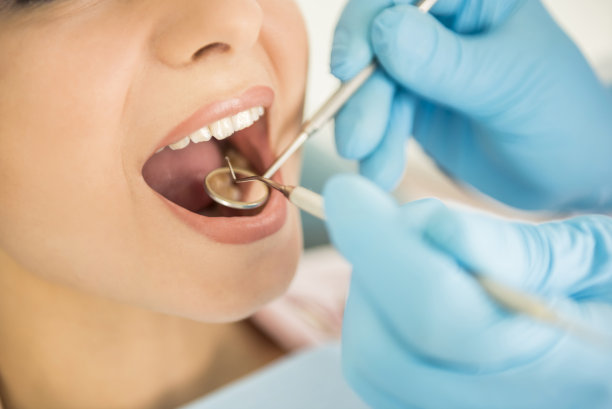Summary: The future of dental implants is rapidly evolving with groundbreaking technological advancements that not only enhance patient experiences but also ensure lasting smiles. This article explores four key areas of innovation: the rise of digital dentistry, the integration of biocompatible materials, the implementation of 3D printing technology, and the focus on patient-centered care. Each aspect highlights the importance of improved procedures, personalized treatments, and greater accessibility to cutting-edge solutions. As dental practices continue to adopt these innovations, patients will benefit from improved outcomes, shorter recovery times, and an overall transformation in dental health care delivery.
1. The Rise of Digital Dentistry

Digital dentistry is revolutionizing the methodology behind dental implants. No longer do patients need to rely on traditional molds to create impressions; digital scanning techniques allow for accurate and immediate assessments of the oral cavity. This not only enhances precision but also contributes significantly to patient comfort.
Moreover, the use of computer-assisted design and manufacturing (CAD/CAM) technology enables dentists to fabricate implants tailored precisely to each patients anatomy. This customization leads to improved fit and functionality, ultimately resulting in longer-lasting solutions.
The ability to visualize treatment plans digitally also aids in patient consultations. Patients can see what to expect from their procedures, enhancing their understanding and easing any potential anxiety regarding their dental care.
2. Integration of Biocompatible Materials
Another significant advancement in dental implants is the utilization of biocompatible materials. The development of dental implants made from materials such as titanium and zirconia not only ensures durability but also promotes osseointegration, the process by which the jawbone fuses with the implant.
These biocompatible materials are designed to minimize the risk of rejection by the body, which is crucial for the success of dental implants. As research progresses, new materials are being developed that aim to enhance the regenerative capacity of surrounding tissues, thereby facilitating faster healing times.
Additionally, innovative surface treatments and coatings are being introduced to further boost implant stability and integration. This focus on biological compatibility ensures that patients experience improved outcomes with their dental implants and maintain their smiles for years to come.
3. Implementation of 3D Printing Technology
3D printing technology is making significant inroads into the dental field, particularly in the production of implants and prosthetic components. This method allows for swift and efficient manufacturing processes, leading to reduced waiting times for patients.
By enabling the creation of customized dental implants that fit the unique specifications of each patients mouth, 3D printing enhances the overall satisfaction with dental procedures. The precision of 3D-printed implants also minimizes the need for invasive procedures, creating a less traumatic experience for patients.
Not only is this technology beneficial for patients in terms of comfort and outcomes, but it also allows dental professionals to streamline their workflows, thereby increasing the overall efficiency of dental practices. As this technology becomes more widely adopted, it promises to reshape the landscape of dental care.
4. Focus on Patient-Centered Care
As innovations in dental implants continue to evolve, there is a growing focus on patient-centered care. This approach integrates the preferences, needs, and values of patients into the design and delivery of dental services.
Enhanced communication with patients regarding their options for dental implants fosters an environment of trust and satisfaction. Dentists are now placing greater emphasis on shared decision-making, where patients are encouraged to be active participants in their treatment plans.
Furthermore, the integration of telehealth services allows for continuous monitoring and follow-up care, giving patients the support they need post-procedure. This holistic approach ensures that dental implant procedures are not only about the technical aspects but also about the emotional well-being of patients.
Summary:
In conclusion, the future of dental implants is shaped by groundbreaking innovations in technology and a commitment to enhancing patient experiences. As digital dentistry, biocompatible materials, 3D printing, and patient-centered care continue to develop, both patients and dental professionals are set to benefit from improved outcomes and a more personalized approach to dental health.
This article is compiled by Vickong Dental and the content is for reference only.
Vickong Dental
Vickong Dental is a large medical group established in Hong Kong in 2008 by professors from well-known medical universities in Guangdong and Hong Kong, as well as medical doctors from key national '985' universities (including Master's supervisors and senior professors). The chain of branches brings together expert dentists with PhDs and Master's degrees from Hong Kong and Mainland China, committed to providing high-quality dental treatment.
"Vickong Dental Practices the University Motto of 'Healing and Serving Society,' with a Stable Operation for Sixteen Years. It Has Been honored with Hong Kong Enterprise Leaders's Choice,' and is a Global Trusted Implant Center for the Nobel Implant System. Recommended by Hong Kong Metro Broadcast and Guangdong Television, it Serves Customers from Over Thirty Countries and Regions, Gaining the Trust and Favor of Citizens from the Guangdong-Hong Kong-Macau Greater Bay Area and Surrounding Cities.

Thousands of customers' unanimous praise
The most recognized and highly recommended dental service by customers in the Guangdong-Hong Kong-Macau Greater Bay Area
We Ensure You Receive Detailed Care and Attention Here
Hong Kong standards, Shenzhen prices, Your Trusted English-speaking dentists

Vickong Dental Medical-Grade Instrument Disinfection Process
Vickong Dental Medical-Grade Instrument Disinfection Process

Vickong Dental Chain: A Warm and Comfortable Environment for Treatment






Appointment Hours

Q&A
Why choose Vickong Dental?
Vickong Dental practices the university motto 「Medicine to Benefit Society」, with each branch bringing together highly qualified dentists with doctoral and master’s degrees from Hong Kong and the Mainland, and has maintained seventeen years of steady operation。Recipient of 「2024 Hong Kong Enterprise Leaders Brand」, 「2025 Hong Kong Enterprise Leaders Brand」, a Nobel Biocare Global Trusted Implant Center, and a brand recommended by Metro Radio Hong Kong and Guangdong TV。
To date, we have served customers from more than thirty countries and regions,earning exceptionally high word-of-mouth recognition and trusted recommendations from residents across the Guangdong-Hong Kong-Macao Greater Bay Area and surrounding cities
We have eight major branches in Zhuhai、Shenzhen,and a consultation and service assurance center in Hong Kong,so you can book a free consultation at any time for any questions,which is very reassuring.
If I do not accept the quotation after the CT scan, will I be charged??
No! As long as the actual treatment has not started, you will not be charged any fees.
Will there be any additional charges during the treatment process?
No, there won’t be any additional charges. Before treatment begins, we will clearly explain the treatment plan and its corresponding fees. Only after the patient agrees and signs the consent form will we proceed with the dental service.
Can I pay in Hong Kong dollars?
Yes. Vickong Dental accepts payment in Hong Kong dollars. The amount will be converted based on the exchange rate of the day, and the applicable rate will be clearly communicated to you in advance.
Can I reschedule my appointment at any time?
Yes. Please contact us via **WeChat** or **WhatsApp** as early as possible, providing your original appointment time and details, along with your preferred new date and time slot for rescheduling.













